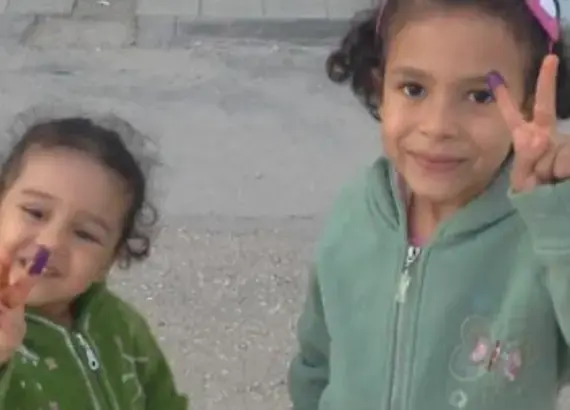
Success Story
NDI Research: As New Leaders Enter Office, Tunisians Determined to Connect with Elected Officials
100 days since Tunisia’s newly-elected government entered office, Tunisians are reporting frustration with the discrepancy between candidates’ promises for more citizen engagement and their actions as elected officials. Despite their disappointment, Tunisian citizens still seek opportunities to connect with their elected leaders, according to newly released NDI focus group research.
After three separate democratic elections in the past year, new leaders are beginning to govern in Tunisia. In Dec. 2014, Béji Caïd Essebsi began his five-year term as president. In Feb. 2015, Prime Minister Habib Essid formed a multi-partisan cabinet. And the new parliament, the Assembly of People’s Representatives (ARP), has started to debate and approve legislation.
Conducted from May 2 to 9, the focus group research included 140 participants from four cities across Tunisia: Bizerte, Kasserine, Sfax and Grand Tunis. The research built on twelve previous rounds of public opinion research conducted by NDI since March 2011.
NDI’s research evaluated the reaction of Tunisian citizens to the new class of elected and appointed politicians, as well as their perspectives on the country’s economic and security challenges. The economy, particularly rising prices and enduring unemployment, continues to be a primary concern for many Tunisians. “If you don’t give citizens life essentials like employment, improvement in the standard of living and health care, then how can they live?” asked one male participant from Kasserine.
In the wake of the March 18 attack on the Bardo museum, citizens are divided about whether the security situation is improving and whether new anti-terrorism measures have been effective. They are concerned about how the government balances responding to terrorism with protecting liberties won in the 2011 revolution. “I think citizens’ thinking has developed a lot concerning politics,” offered a hopeful young man from Kasserine. “They became aware of the importance of democracy and we’ll never accept going back to tyranny.”
Key findings include:
- Tunisians, citing the inability of elected politicians to confront economic problems, generally believe the country is headed in the wrong direction. Some participants view insecurity as rising, though others praise the effectiveness of the more aggressive security posture the government has adopted since the Bardo attack.
- Political and civic liberties — including freedom of speech and the conduct of the 2014 elections — are most commonly cited as signs of optimism, yet some worry that the state’s response to terrorism is placing these rights in greater jeopardy.
Parliament:
- The majority of participants believe that parliament has achieved little since its inauguration, though some note progress on anti-terrorism legislation. They hold members of parliament accountable for failure to fulfill campaign promises, absenteeism, self- or partisan interest and divisive behavior.
- Participants want their MPs to work hard on behalf of constituents’ interests, but believe they neither understand nor effectively represent their concerns. Some contrast the frequency of contact with politicians during the campaign period with their present disconnect. Many are not aware of their district MPs’ names or activities. “Every representative should create a committee of 15 or 20 people and give them tasks to do in accordance with his region,” suggested one participant from Tunis. “These individuals should interact with people and listen to them on behalf of this representative. If I want to meet someone in the parliament, how can I do so? Am I free to meet him? I am working all the time.”
- Nevertheless, participants hope to meet MPs face-to-face to discuss their problems and to better understand how MPs can develop solutions for them. To this end, respondents propose that MPs assign district-based staff or form advisory committees of constituents.
Executive Governance:
- Participants struggle to identify the achievements of Essid’s government in its first 100 days, pointing to a lack of progress on unemployment and inflation. Some do acknowledge that the government has inherited a complex slate of social and economic issues, and others praise the government for its perceived proactive efforts to combat terrorism.
- While some participants commend ministers for conducting site visits throughout the country, the majority criticize ministries for inaction and poor decisions, failure to coordinate with each other and lack of communication with the public.
Economy:
- Unemployment and inflation — attributed to insecurity, strikes and lack of investment — are the economic issues of greatest concern to citizens.
- Citizens see greater state involvement in the economy as a solution, though they also point to the need for individuals to work diligently in their jobs, reject bribery, boycott expensive products and refrain from strikes. In the words of a participant from Sfax,“So many problems should be solved. For example, hospitals and healthcare services should be improved, roads should be repaired, and police officers should talk to people with respect and without insults.”
- They call for the state to play a greater role in improving education, reducing inflation, and attracting investors.
Security:
- Participants agree that newly recruited terrorists are motivated by the promise of financial gain and misinterpretation of religious ideology, though disagree as to the role played by economic opportunity and religious freedom in the recruitment process.
- Citizens see security forces as a vital part of a short-term solution to combat terrorism, but call for long-term solutions to address its root causes, including security sector reform, equitable development, improved education, and promotion of moderate religious ideology.
NDI is sharing the findings with political parties, parliamentary groups and government ministries to inform the policy-making process and encourage increased responsiveness to citizens’ interests and needs.
This research was supported by funding from the U.S. State Department’s Middle East Partnership Initiative.
NDI will honor political and civic leaders from Tunisia at the 2015 Democracy Award Dinner on Nov. 10 in Washington, DC. To learn more and purchase tickets, please contact Kirsten Tallon, [email protected] or 202.728.5483.
Published on August 7, 2015



